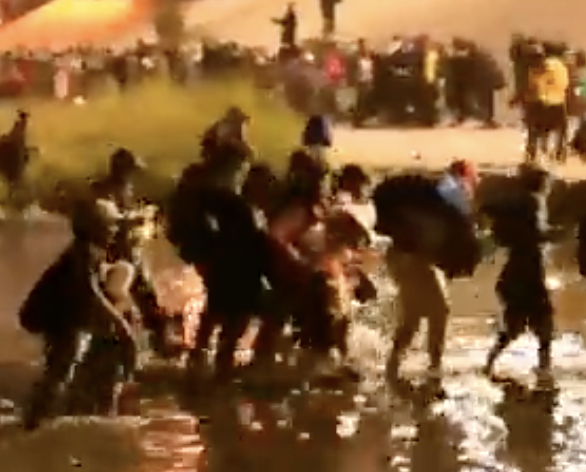Before this mass of migrants crossed, Mexican police escorted nearly 20 buses full of migrants into Ciudad Juarez, the Mexican city across from El Paso, and released them at multiple Non-Governmental Organizations facilitating the migrants. The migrants then walked from the NGOs to the river, and crossed illegally into El Paso. The NGOs give them phones and are generally complicit with the smuggling cartels.
The NGOs receive at least $137 million in federal grants, according to federal budget figures. Grants pay for everything from food, shelter, and transportation to legal services that help the migrants traverse Mexico.
BREAKING: A huge migrant caravan of over 1,000 people crossed illegally into El Paso, TX last night, making it the largest single group we have ever seen. The city of El Paso reports Border Patrol now has over 5,000 in custody & has released hundreds to city streets. @FoxNews pic.twitter.com/ewUQX757Lt
— Bill Melugin (@BillFOXLA) December 12, 2022
Most Central Americans traveling to south Texas come by truck, bus and taxi. Many are stopped by Mexican police who demand to see a 90-day visa issued by Mexican immigration allows them to travel north to the U.S. Obtaining the visa can be confusing, lengthy and difficult. To help, the United Nations High Commission on Refugees has set up offices en route in cities like Tapachula on the Guatemalan border.
“I have been watching the United Nations, UNHCR distribute cash debit cards to migrants. They’re providing food, basic necessities, prescription drugs. They call it movement assistance, which is to say they’re providing, transportation money so that migrants can continue moving forward,” said Todd Bensman, who recently traveled to the Mexican-Guatemalan border for the Washington DC-based Center for Immigration Studies, a right-leaning think tank. Fox
